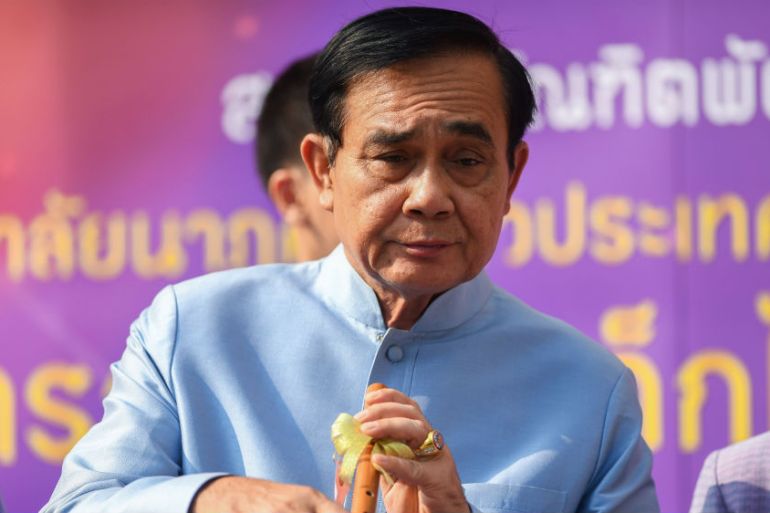Election observers question Thailand’s ongoing vote count
Allegations of electoral fraud have rapidly spread on social media where trending terms include ‘CheatingElection19’.

A group of international election observers has criticised vote-counting in Thailand’s first election since a 2014 military coup.
Thailand’s vote on Sunday was “heavily tilted” to benefit a party close to the ruling generals, one Asian election monitor said, denouncing a messy ballot-counting process that created mistrust.
Keep reading
list of 4 itemsCroatians vote in election pitting the PM against the country’s president
Solomon Islanders vote in election that could shape ties with China
Analysis: Ruling party errors give Turkey’s opposition hope for future
Persistent confusion about results days after the vote has diminished hopes the first vote in five years would end nearly 15 years of political turmoil in Southeast Asia’s second-largest economy.
Official results are not due for weeks, but an opposition “democratic front” said it has attracted enough coalition partners to form a government, while a pro-army party also declared victory and said it would not accept anyone but military government leader Prayuth Chan-ocha as prime minister.
The Bangkok-based Asian Network for Free Elections stopped short on Tuesday of declaring outright fraud in the election.
“The environment at large is heavily tilted to benefit the military junta,” Amael Vier, an official of the civil society group, told a news briefing. “A lot of people still express distrust towards the electoral process.”
‘CheatingElection19’
Thailand’s Election Commission was not immediately available for comment. It has previously declined to comment on accusations of cheating.
|
|
Allegations of electoral fraud have rapidly spread on social media in Thailand, where trending terms on Twitter include “ECBusted” and “CheatingElection19.”
Another monitor group, We Watch, said it sent 4,000 observers to 72 provinces. It released a statement noting it had “many doubts” related to the transparency of the vote count.
With only partial results reported, the party backing military government leader Prayuth has said it was gathering coalition partners to form a government.
But the main opposition Pheu Thai party – loyal to overthrown former Prime Minister Thaksin Shinawatra – has alleged “irregularities” and is considering legal challenges, while also saying it is putting together a coalition government.
What next?
It could be days or even weeks before it is clear whether either has won enough seats to form a stable government.
A fuller picture could emerge on Friday when the commission releases vote tallies for each constituency, used to determine the allocation of party seats in a complex formula.
Pheu Thai’s secretary-general, Phumtham Wechayachai, said the party had secured more than 250 seats, or half the House, entitling it to form a majority government.
Prayuth, meanwhile, spoke to the media on Tuesday for the first time since the election, though he refused to take any questions.
He said he was not yet trying to form a new government and instead would focus on his work as prime minister and military government regime leader until there was a “new government legally under the constitution”.
Prayuth said everything was going as mandated by the new charter, which he noted had been approved in a referendum. “Try to respect the people’s voice,” he said. “That’s all.”
Since 2004, Thailand has been rocked by street protests organised by both opponents and supporters of Thaksin, occasionally spilling into violence.
Parties linked to Thaksin have won every election since 2001, but the populist telecoms billionaire was thrown out by the army in 2006, and a government led by his sister was overthrown in 2014.